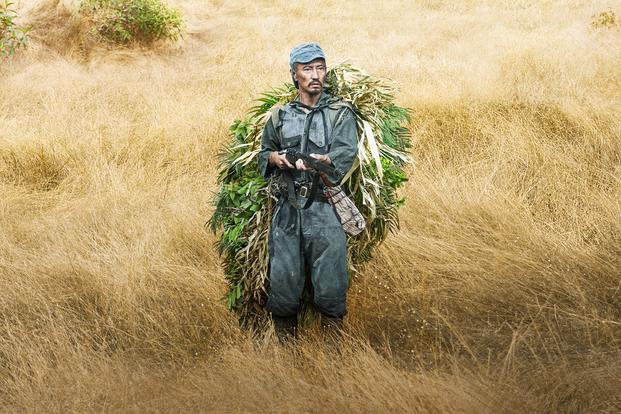When Japanese soldier Hiroo Onoda was deployed to Lubang in the Philippines in 1944, he was instructed to hold the remote island until the Japanese Army returned. Onoda took the orders very seriously and fought a guerrilla war on the island for more than 10,000 days until he finally surrendered in 1974.
This is an absolutely true story. It's not like his country forgot him. Search parties could not convince Onoda that Japan had lost the war. They carried photos from Onoda's family members, but he thought they were fakes because, since his hometown had been bombed and rebuilt, the buildings in the images didn't match his memories.
For most of his lonely war, Onoda served alongside fellow Japanese soldier Kinshichi Kozuka, but Kozuka fell in 1972 when he was shot by the local Filipino police. When Onoda returned to Japan, he wrote a bestselling memoir, married and lived quietly until he died at age 91 in 2014.
His incredible story later became the subject of a feature film. French director Arthur Harari's "Onoda: 10,000 Nights in the Jungle" premiered at the 2021 Cannes Film Festival and has earned both acclaim and condemnation for its portrayal of the Japanese officer. The film is available to buy or rent on digital streaming services including YouTube, Vudu and Apple TV.
Onoda, like many Japanese soldiers, fully embraced the principles promoted by his country's military command. Losing was inconceivable, surrender was shameful, and suicide was unimaginable. There were other Japanese soldiers who continued the fight in remote locations in the Pacific after their country's surrender, but none who held out as long as Onoda.
We've got a clip from the movie that shows the tension between the troops in 1949, when Onoda still had command of a small band of holdouts on Lubang.
Even though Onoda believed he was still operating under wartime conditions, the conflict was over and his guerrilla military actions were actually a form of terrorism. Harari's film doesn't really offer that perspective on the violence Onoda committed after the war was officially over, but it's really not a stretch to hold the soldier responsible after he'd been told the truth.
"Onoda: 10,000 Nights in the Jungle" is still a fascinating movie, and it's a story worth learning. How does a soldier know when the war is over? How can men trained to hold out at all costs accept defeat? This movie tries to address those questions through one very strange soldier's experience.
Keep Up With the Best in Military Entertainment
Whether you're looking for news and entertainment, thinking of joining the military or keeping up with military life and benefits, Military.com has you covered. Subscribe to the Military.com newsletter to have military news, updates and resources delivered straight to your inbox.










